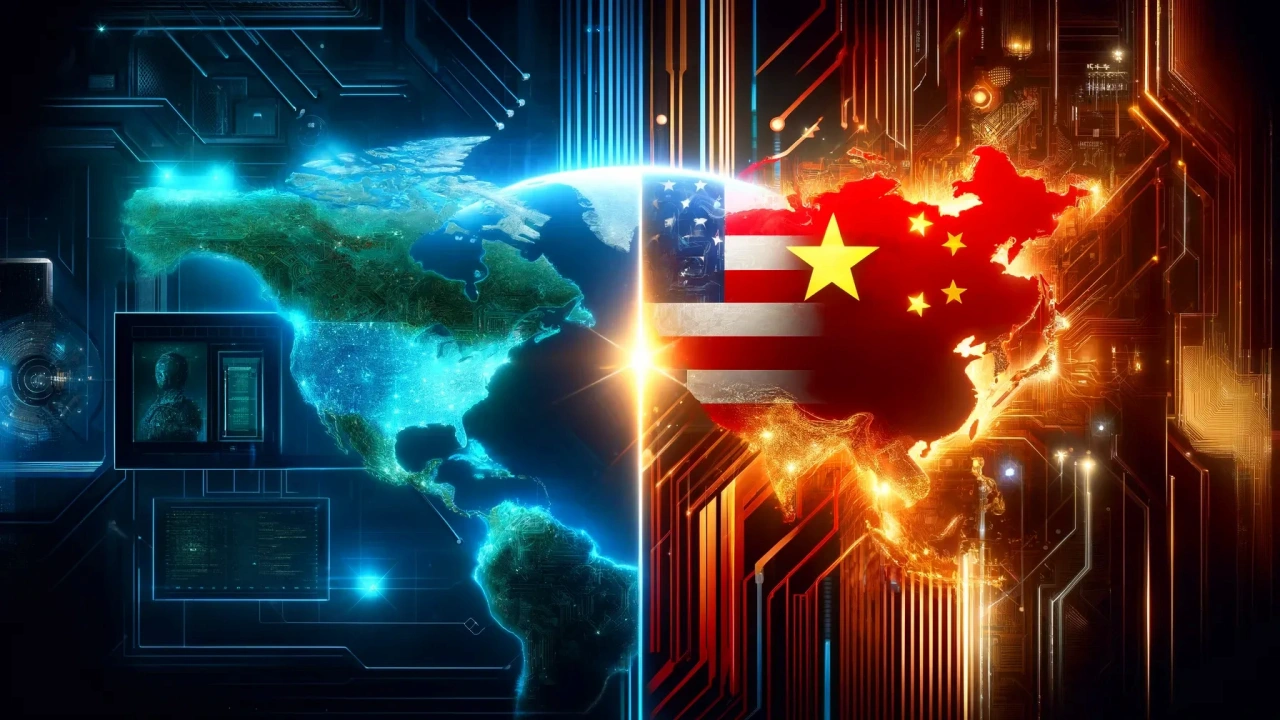GloNews10

Artificial Intelligence AI Dominance: In 2025, Artificial Intelligence (AI) is no longer a futuristic concept — it is the backbone of innovation, powering everything from healthcare diagnostics to autonomous vehicles and advanced defense systems. According to recent global rankings, the United States stands at No. 1 in AI innovation, leading the world in research, patents, and real-world adoption.
But America’s dominance in AI is not only about innovation; it is also about policy, security, and global strategy. With new export restrictions on AI chips and technologies, the U.S. government has made it clear that advanced AI must remain an advantage for allies and not fall into the hands of adversaries like China and Russia.

The United States is home to leading AI labs, universities, and companies like OpenAI, Google DeepMind (U.S. branch), Microsoft, NVIDIA, and IBM. Billions of dollars are invested annually in AI R&D, making the U.S. the largest contributor to AI breakthroughs worldwide.
AI-driven tools are transforming healthcare with faster disease detection, personalized medicine, and robotic surgeries. For example, AI algorithms can detect cancer cells earlier than human doctors, reducing misdiagnosis and saving lives.
From Tesla’s self-driving technology to smart traffic management systems in U.S. cities, AI is redefining mobility. Autonomous trucks are being tested for long-haul logistics, promising safer and more efficient supply chains.
Defense applications of AI include drone swarms, predictive analytics for battlefield strategies, and cybersecurity systems that counter cyberattacks in real time. The U.S. Department of Defense has significantly increased its AI budget to maintain military superiority.

China has rapidly invested in AI and is considered the U.S.’s closest rival. However, the U.S. still leads in high-performance AI chips, patents, and advanced machine learning models. To maintain this lead, the U.S. has imposed export restrictions on advanced AI semiconductors and chips.
In 2025, the U.S. government tightened controls on AI chip exports, particularly targeting sales to China, Russia, Iran, and North Korea. These rules aim to prevent potential adversaries from using AI for military purposes, including autonomous weapons and advanced cyberwarfare.
Alongside restrictions, the U.S. is working closely with allies in Europe, Japan, South Korea, and India to develop ethical AI frameworks and strengthen supply chains for semiconductors.
While the U.S. leads, challenges remain:
Looking ahead, Artificial Intelligence (AI) in the U.S. will continue to evolve rapidly:
However, the future also depends on responsible AI governance. The U.S. is working on global AI safety frameworks to ensure innovation doesn’t compromise human rights and democratic values.
Artificial Intelligence (AI) dominance by the U.S. is more than just a technological achievement — it is a matter of global leadership and security. From healthcare to defense, America’s innovations are shaping the future. At the same time, strict AI export rules highlight the geopolitical stakes of this technology.
As the race for AI supremacy continues, Constitutional values of freedom, ethics, and responsibility must guide U.S. innovation. That balance between power and responsibility will determine not just America’s AI future but the global trajectory of technology in the years ahead.